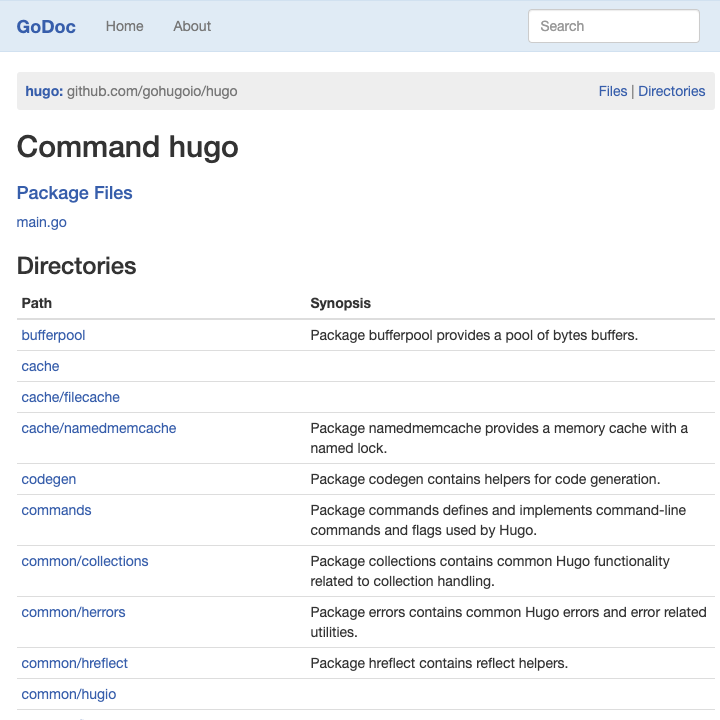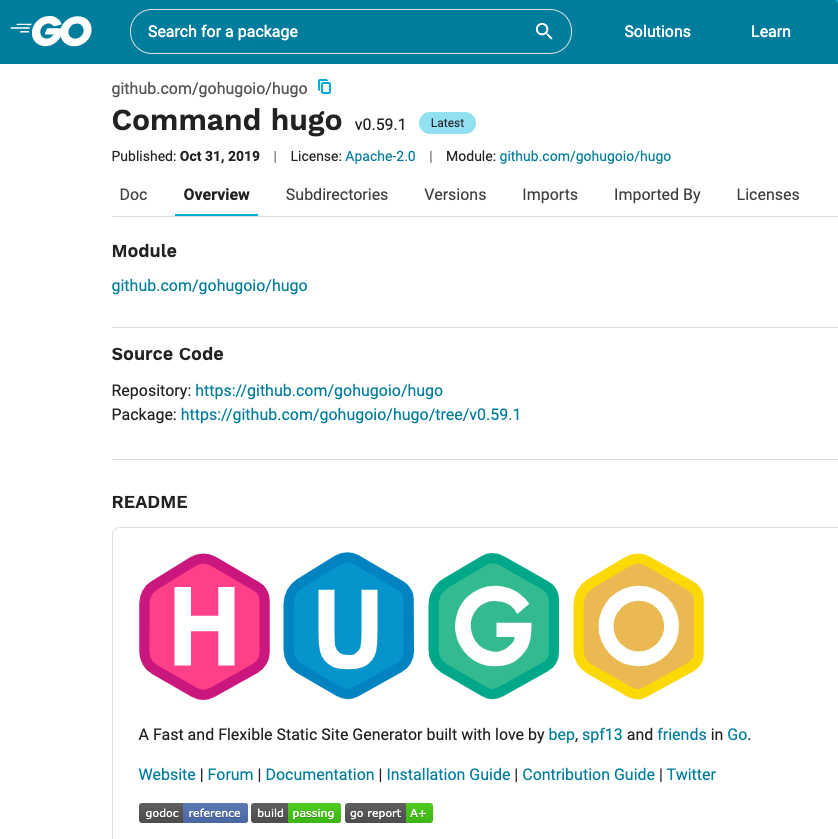The new official Go discovery site is now online : https://go.dev/
How does it differ from the venerable https://golang.org ?
| golang.org | go.dev | |
|---|---|---|
| core target | coders | decision makers |
| promoted content | playground | enterprise use cases |
| secondary content | a conference video | user references, training offerings |
| unique content | the Go project | solutions |
Beyond the obvious targeting difference, the heavy work on go.dev appears to be one of the shared sections: package discovery.
Whereas the original https://golang.org site only used to reference the standard
library packages and the extra tools created by the Go project (other packages
starting at https://golang.org/pkg/), delegating to https://godoc.org the task
of referencing community Open Source packages, and relied on the plain documentation
provided by the go doc comments in code, the newer https://go.dev site behaves
like mainstream code forges (Github, Gitlab & friends), showing redacted
documentation including Markdown README files, and provides higher level
metadata about the code: date of publishing, license, and Go module.


Unlike the technical neutrality found on https://godoc.org, the purpose of the new site is to deliver, with each of its iterations, a better experience promoting higher quality community modules, based on quality, reliability, and more generally a value assessment based on the number of downloads, made possible by the default use of the public modules proxy at https://proxy.golang.org and its associated services, as well as quality metrics provided by static analysis, and more quality signals to be added over time.
This new organization means the future of Go modules is likely to set the stage for SEO power games. Some of these issues are examined in the original public presentation of the site by Julie Qiu in this Gophercon Europe video.